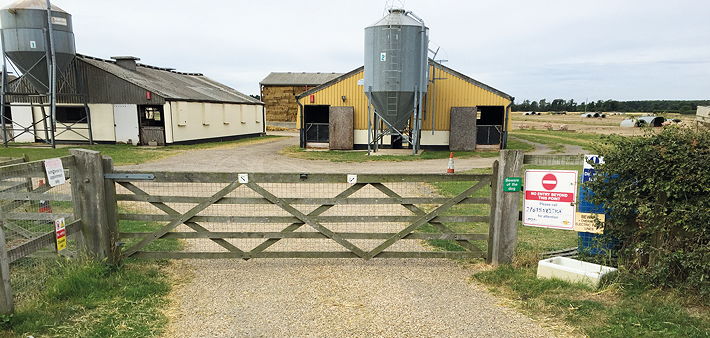Gemma Thwaites is a director at Garth Pig Practice. She is involved in advisory work and all aspects of investigations on farm and has a particular interest in improving health on farm and disease eradication plans
As many of you may know, due to health reasons I was forced to step away from farm visits for a while.
I was immunosuppressed, which means I was not allowed any contact with pigs. I am pleased to say that I am over my treatment and heading back on to units. One of the ‘silver linings’ of my loss of hair is how much easier it will be going through the showers! I recall a number of times my previously long hair had frozen solid going around a unit after showering.
This got me thinking about the showers and the protective clothing provided on some units and, let us call it their ‘variability’ in quality. I am sure my fellow vets will attest to going through a dirty shower into a dirty changing room before being given ripped clothing and heading out past a dirty bait room. I have certainly wondered sometimes if I have come out dirtier!
Provision of a shower is excellent for biosecurity and a hair wash, shower, nose blow and change of clothes will keep most things out of a unit, but there must be distinct barriers. The cleaner the whole area is, the less likely people are to break these barriers. If showers are clean, it can easily be seen if someone has walked through to the ‘dirty’ side in boots that will then return on site.
Provision of the shower alone is not enough. If you want someone to wash properly then decent water pressure at the right temperature will help. No one wants to spend long in a freezing shower during January.
Studies have shown that 30 seconds of handwashing is more effective at removing E. coli compared with 15 seconds of handwashing. Antimicrobial soap made little difference compared to ordinary soap. It stands to reason that it is important that people fully shower and do not just nip through as quickly as possible.
The clothing provided to staff and visitors should be of sufficient quality that they are comfortable to work in it for the time that they are on the unit. It should remain on the unit and be clean, intact and available to everyone that comes on to the site.
This means people are far less likely to bring their own items onto the unit. Boots without holes make it more likely that people will use the provided foot dips properly rather than dipping the toe of the boot in.
If a staff area/room is provided, ensure this is kept clean. If people sit and eat in a dirty area, not only are there obvious hygiene risks but it does not inspire good hygiene around the unit.
Biosecurity is on everyone’s mind, and for good reason with African swine fever far too close for comfort.
There is much talk of the bigger picture but give some thought to the smaller picture and inspire better perimeter and internal biosecurity of the people moving about your unit – including yourselves!




